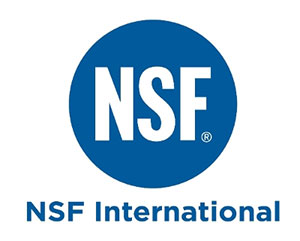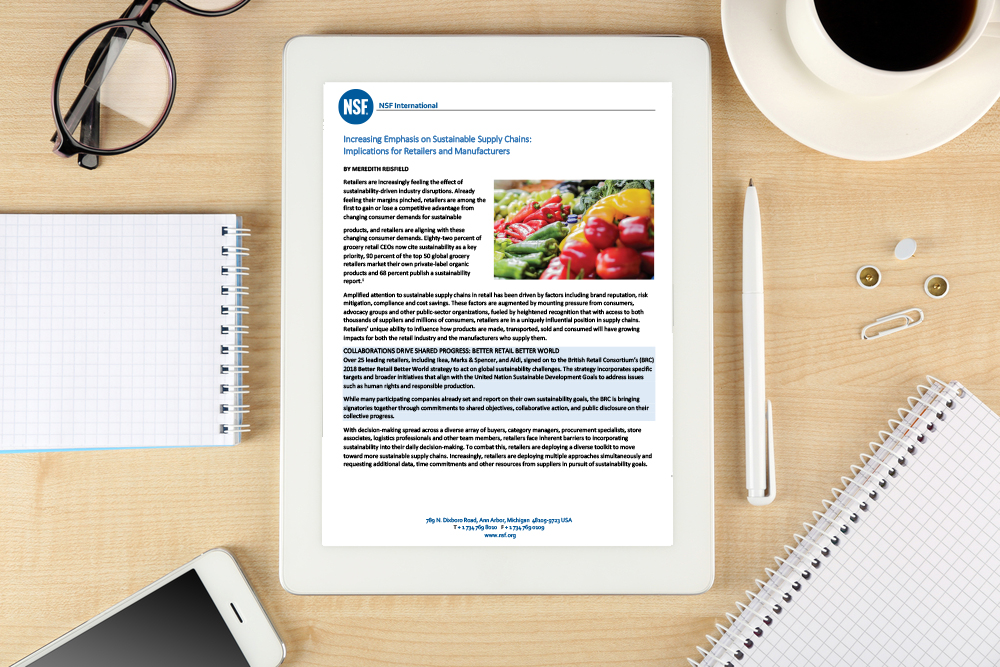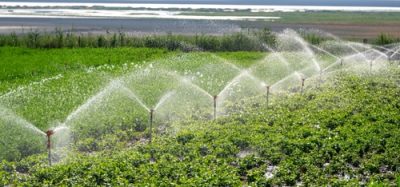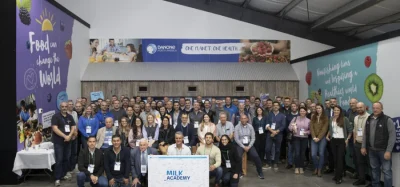Whitepaper: Increasing emphasis on sustainable supply chains: implications for retailers and manufacturers
Posted: 13 June 2018 | NSF International | No comments yet
Retailers are increasingly feeling the effect of sustainability-driven industry disruptions. Already feeling their margins pinched, retailers are among the first to gain or lose a competitive advantage from changing consumer demands for sustainable products, and retailers are aligning with these changing consumer demands…
Eighty-two percent of grocery retail CEOs now cite sustainability as a key priority, 90 percent of the top 50 global grocery retailers market their own private-label organic products and 68 percent publish a sustainability report.
Amplified attention to sustainable supply chains in retail has been driven by factors including brand reputation, risk mitigation, compliance and cost savings. These factors are augmented by mounting pressure from consumers, advocacy groups and other public-sector organisations, fuelled by heightened recognition that with access to both thousands of suppliers and millions of consumers, retailers are in a uniquely influential position in supply chains. Retailers’ unique ability to influence how products are made, transported, sold and consumed will have growing impacts for both the retail industry and the manufacturers who supply them.
With decision-making spread across a diverse array of buyers, category managers, procurement specialists, store associates, logistics professionals and other team members, retailers face inherent barriers to incorporating sustainability into their daily decision-making. To combat this, retailers are deploying a diverse toolkit to move toward more sustainable supply chains. Increasingly, retailers are deploying multiple approaches simultaneously and requesting additional data, time commitments and other resources from suppliers in pursuit of sustainability goals.
The rest of this content is restricted - login or subscribe free to access
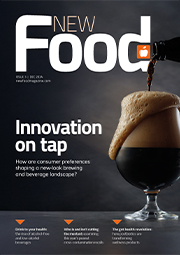

Why subscribe? Join our growing community of thousands of industry professionals and gain access to:
- bi-monthly issues in print and/or digital format
- case studies, whitepapers, webinars and industry-leading content
- breaking news and features
- our extensive online archive of thousands of articles and years of past issues
- ...And it's all free!
Click here to Subscribe today Login here
Related content from this organisation
- How the changes to China’s customs rules will impact exporters
- Study reveals the five biggest challenges faced by fast food restaurants
- Everything you should know about food-grade lubricants
- Panel discussion: Can food labels and product claims help consumers make informed food choices?
- Seven misconceptions about food-grade lubricants
Related topics
Revenues, Supply chain, Sustainability, The consumer, Trade & Economy



